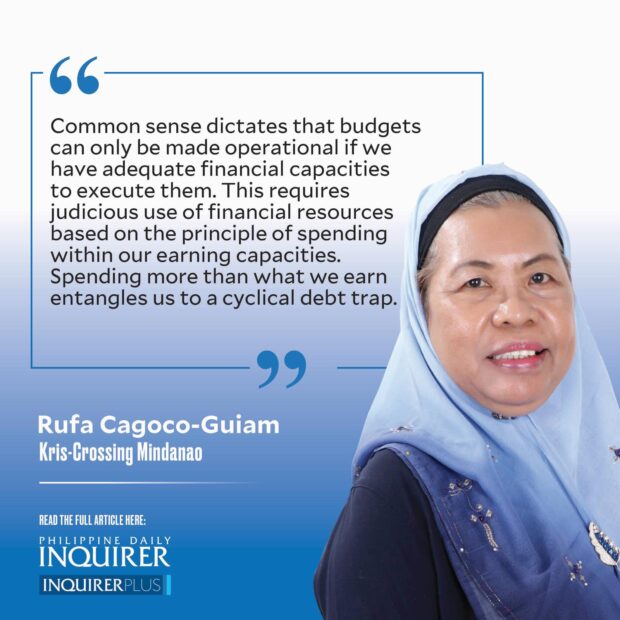‘Future-proofing’ our national economy?

According to the Department of Budget and Management (DBM), the increase in the budget for next year is designed to “future-proof” and “spur its high growth trajectory” so that the Philippines will attain upper middle-income status by 2025.
Last week, Sonny Africa, executive director of the alternative economic think tank Ibon Foundation, wrote a three-part analysis of President Marcos’ proposed budget for 2024, calling it “a budget badly made.” Africa argues that the budget is pro-rich rather than pro-poor—its priorities are focused more on huge infrastructure projects and debt servicing rather than on allocating resources to alleviate the plight of more than 20 million poor Filipinos who live in grinding poverty. These are those whose daily incomes are insufficient to meet their basic food and nonfood needs, given the current spikes in basic food prices in the last few weeks.
Article continues after this advertisementA national budget, according to Africa, is crucial in determining policy priorities to “spur growth, develop the economy, and improve the conditions of the people …” The 2024 budget, according to Africa, does not reflect these goals. Instead, it shows that “alleviating the distress of millions of poor families facing cost-of-living pressures is less important than its infrastructure projects and debt servicing. The proposed 2024 budget leaves millions of Filipinos behind while favoring special interest groups—big corporations and creditors, political pork barrel, and the military and police.”
Indeed, the three most privileged sectors to get the highest shares in the proposed 2024 budget are the following: 1) Department of Public Works and Highways, P822.2 billion or 14.3 percent; 2) Department of Education (DepEd), P758.6 billion or 13.2 percent; and 3) debt servicing, P670.5 billion or 11.6 percent. DepEd, whose secretary is Vice President Sara Duterte will get an additional P150 million in confidential funds.
There is nothing wrong with allocating huge amounts of money for infrastructure projects—it is obviously capital-intensive since construction materials and supplies are quite costly. But their long-term impact, according to Africa, pales in comparison with the direct benefits of more social welfare and protection programs for the poor that he considers pivotal in ensuring sustainable economic growth. In addition, whatever impact these huge ticket infrastructure projects will achieve will be limited since there are no efforts to complement these with projects to modernize our agricultural and industrial sectors. Instead, the hype on improving people’s lives through this “badly made” budget will just sustain the “low-value-added” and nonindustrialized structure of our economy, replicating what it has been for decades.
Article continues after this advertisementI am no economics expert like Africa, but common sense dictates that budgets can only be made operational if we have adequate financial capacities to execute them. This requires judicious use of financial resources based on the principle of spending within our earning capacities. Spending more than what we earn entangles us to a cyclical debt trap. To ensure a future of sustainable economic health, we need to have substantial savings to tide us by in times of economic crisis or when some health emergencies arise within our families.
Our national budget is supposed to be designed using this simple principle. But we have a Chief Executive who embellishes his leadership style with promises of future-proofing toward “a new and progressive Philippines” and “spurring its growth trajectory” when a huge part of the budget is spent on debt servicing. Within less than two years of his administration, the government has incurred an additional P51.31 trillion debt that resulted in a new record of, hold your breath, P14.15 trillion national debt as of June 2023. For sure, this huge amount of debt did not go into pro-poor programs—a huge part of it went to paying debts, an economically unhealthy practice, and proof of profligate spending.
Perhaps it is no longer our national budget. It is the budget designed to future-proof the lives of those in leadership positions who are already enjoying opulent lifestyles, of those whose financial boats are assured of floating in oceans of moolah not only next year but for more years to come. All talk about the budget as being pro-poor is just pure hogwash.
Comments to rcguiam@gmail.com
















